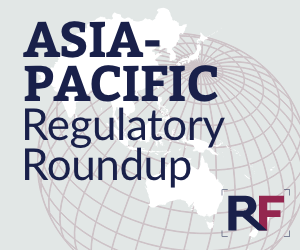Asia-Pacific Roundup: Philippine FDA seeks feedback on streamlining regulatory filing process
 AsiaBiologics/ biosimilars/ vaccinesBiotechnologyDiagnostics/IVDsMedical DevicesOceaniaPharmaceuticalsProduct Lifecycle
AsiaBiologics/ biosimilars/ vaccinesBiotechnologyDiagnostics/IVDsMedical DevicesOceaniaPharmaceuticalsProduct Lifecycle AsiaBiologics/ biosimilars/ vaccinesBiotechnologyDiagnostics/IVDsMedical DevicesOceaniaPharmaceuticalsProduct Lifecycle
AsiaBiologics/ biosimilars/ vaccinesBiotechnologyDiagnostics/IVDsMedical DevicesOceaniaPharmaceuticalsProduct Lifecycle